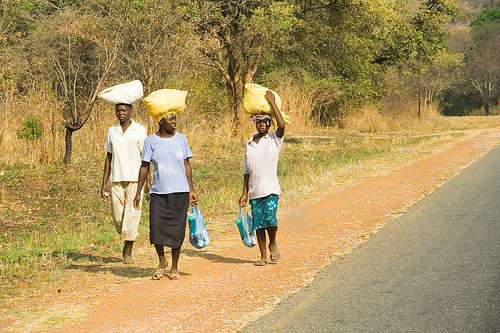
As the country’s cash crisis continues unabated, rural folk appear the hardest hit, with villagers in Gutu North resorting to the primitive barter trade, using maize to buy groceries, Southern Eye can reveal.
BY AUDREY MUTASA
Villagers in Sonomi, a resettlement area 12km from Gutu town, claimed shop owners now accepted goods in exchange for groceries.
“We have no other source of income other than our crops and livestock and because cash is scarce, we could not sell our crops, hence, the shops have started to accept barter trade,” a villager said.
A survey by Southern Eye at the nearby shops in Sonomi revealed that villagers were buying three two-litre opaque beers for a 20 kg bucket of maize, while milling the same amount of maize would cost 5kg of maize.
To buy a 2kg packet of sugar, one requires 15kg of maize, which is worth about $3.
Another villager, William Mutondoro, said he last handled cash six months ago.
“I have not handled cash since then, and this has made our lives nightmarish because we cannot sell our livestock or maize, which is our source of livelihood. This means we remain condemned to this place because travelling requires cash,” he said. Another villager, who declined to be named, said: “At one time, my child got sick and, the clinic, which is over 10km away, was demanding cash, and I did not have it.
- Chamisa under fire over US$120K donation
- Mavhunga puts DeMbare into Chibuku quarterfinals
- Pension funds bet on Cabora Bassa oilfields
- Councils defy govt fire tender directive
Keep Reading
“Had it not been for the intervention of well-wishers, I would not have been assisted. This is how dire our situation has become.”
One of the shopkeepers in Sonomi, who identified herself as Betty, said it was not their choice to resort to barter.
“We have to keep the store open, and since villagers do not have cash, we buy their maize and sell it in town for some cash, but it is not easy, as we also need to buy goods for the shop and the profits are dwindling, so are our shelves becoming empty,” she said.
Cash shortages, which worsened after the introduction of bond notes last year, were persistent, with experts projecting the situation will continue worsening.
Of late, there has been the return of money changers, who were cashing in on desperate Zimbabweans who have money in their accounts, but cannot withdraw it from the formal banking system.
The cash barons then sell the cash at a high rate in exchange for bank transfers.











